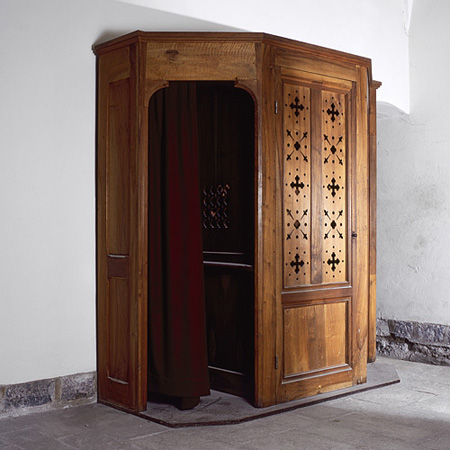Fr. James Martin published a pier in The Washington Post on December 16th that I am surprised has not got greater attention.
The piece is titled “Five myths bout Christmas” and he goes on to write this:
3. Jesus was an only child.
Catholics, myself included, believe that Mary’s pregnancy came about miraculously — what we call the “virgin birth.” (Frankly, this has always been easy for me to accept: If God can create the universe from nothing, then a virgin birth seems relatively simple by comparison.) Catholics also believe that Mary remained a virgin her entire life, though many Protestants do not.
So when Catholics stumble upon Gospel passages that speak of Jesus’s brothers and sisters, they are often confused. In the Gospel of Luke, someone tells Jesus: “Your mother and brothers are standing outside, wanting to see you.” In Mark’s Gospel, people from Nazareth exclaim: “Is not this the carpenter’s son? . . . Are not his brothers James and Joseph and Simon and Judas? And are not all his sisters with us?” Even Saint Paul called James “the Lord’s brother.”
Such passages are sometimes explained away by saying that these are Jesus’s friends, relatives, half-brothers or, most often, cousins. But there is a perfectly good word for “cousins” in Greek, which Mark and Luke could have used instead of “adelphoi,” meaning “brothers.” Many Catholic scholars maintain that Jesus indeed had brothers and sisters — perhaps through an earlier marriage of Joseph. So a virgin birth, but (step-) brothers and sisters.
It is a myth that Jesus was an only child?
The Catechism states:
Mary – “ever-virgin”
499 The deepening of faith in the virginal motherhood led the Church to confess Mary’s real and perpetual virginity even in the act of giving birth to the Son of God made man. In fact, Christ’s birth “did not diminish his mother’s virginal integrity but sanctified it.” And so the liturgy of the Church celebrates Mary as Aeiparthenos, the “Ever-virgin”.
500 Against this doctrine the objection is sometimes raised that the Bible mentions brothers and sisters of Jesus. The Church has always understood these passages as not referring to other children of the Virgin Mary. In fact James and Joseph, “brothers of Jesus”, are the sons of another Mary, a disciple of Christ, whom St. Matthew significantly calls “the other Mary”.They are close relations of Jesus, according to an Old Testament expression.
501 Jesus is Mary’s only son, but her spiritual motherhood extends to all men whom indeed he came to save: “The Son whom she brought forth is he whom God placed as the first-born among many brethren, that is, the faithful in whose generation and formation she co-operates with a mother’s love.”
This is one of the four Marian dogmas and to imply otherwise is heresy. Maybe this section is just badly written and does not mean to imply that and this is what I would charitably want to believe. It is certainly possible that Joseph was a widower and had children as is asserted in the apocryphal Proto-evangelium of James. If this is what Fr. Martin wanted to point out than his title of the section is misleading. Plus Catholics do not stumble when they read these references in the Bible, it is Protestants that do since references to brothers can also be cleared up by other passages. Anybody with even a passing interest in Apologetics are aware of this. As Catholic Answers points out:
In John 19:25 we read, “Standing by the foot of the cross of Jesus were his mother and his mother’s sister, Mary the wife of Cleophas, and Mary of Magdala.” Cross reference this with Matthew 27:56: “Among them [at the cross] were Mary Magdalene and Mary the mother of James and Joseph, and the mother of the sons of Zebedee.” We see that at least two of the men mentioned in Matthew 13 were definitely not siblings of Jesus (although they’re called adelphoi); they were Jesus’ cousins–sons of their mother’s sister.
The Bible is simply silent on the exact relationship between Jesus and the other two men, Simon and Jude, mentioned in Matthew 13. This proves two important things. First, it proves that the Greek word for brother is sometimes used to mean something other than sibling, and it proves that Matthew 13:55-56 in no way demonstrates that Mary had other children.
So Fr. Martin’s contention that the Greek word adelphoi must be brothers and not some other relationship is simply false.
Many Catholic scholars maintain that Jesus indeed had brothers and sisters — perhaps through an earlier marriage of Joseph. So a virgin birth, but (step-) brothers and sisters.
Many Catholics scholars believe — lots of stupid things. Plus whenever you insert such a phrase it is used to assert pretty much anything you want.
If Fr. Martin just wanted to point out that it was possible that Jesus had half-brother than this piece is very poorly written since is allows as a conjecture that Mary went on to have other children. It does not deny this possibility in any way. This type of article is exactly why I have so much problems with those who have publicly self-identified themselves a “progressives.” They seem to snip away at dogmas and the magisterium of the Church without actually specifically denying them. It is seemingly a wink-wink to the reader.
When you write a piece concerning the truths of the Catholic faith for the public you must be especially careful and this piece only sows confusion. To say “Jesus was an only child” is a myth is totally inaccurate since there is only a possibility that he had half-brothers and sisters and zero possibility that Mary had other children.
Fr. Martin gets a good amount of public attention and some of what he does is very good, but it does not justify shoddily written pieces like this.

